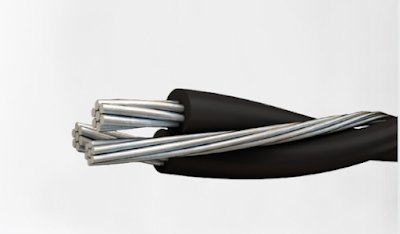 |
| Boring Machine Cable |
Understanding Boring Machine Cables
In the world of heavy machinery and construction, the term "
boring machine cable" might not immediately ring a bell for everyone. However, these cables play a crucial role in the operation of boring machines, which are essential in various industries such as mining, construction, and infrastructure development. In this comprehensive guide, we will delve into the depths of what exactly a
boring machine cable is, its significance, and its applications.
What are Boring Machine Cables?
Boring machine cables, also known as tunnel boring machine cables or simply TBM cables, are specialized cables designed to withstand the rigorous conditions encountered in underground drilling and boring operations. These cables are constructed with durability and reliability in mind, as they must endure harsh environments such as extreme temperatures, moisture, abrasion, and mechanical stress.
The Importance of Boring Machine Cables
Boring machine cables serve as the lifeline of tunnel boring machines, providing essential connectivity for power, communication, and control systems. Without reliable cables, the operation of boring machines would be compromised, leading to delays, downtime, and potentially hazardous situations.
Applications of Boring Machine Cables
Boring machine cables find widespread applications in various industries and projects, including:
- Mining: Boring machines are commonly used in mining operations to excavate tunnels for extracting minerals and ores. Boring machine cables ensure uninterrupted power supply and communication within the tunnels, enabling efficient mining operations.
- Infrastructure Development: In urban areas, boring machines are employed for constructing underground tunnels for transportation systems such as subways, railways, and pipelines. Boring machine cables facilitate the smooth functioning of these infrastructure projects by providing reliable connectivity.
- Construction: Boring machines are utilized in construction projects for creating underground passages, such as utility tunnels and drainage systems. Boring machine cables play a vital role in powering the machines and transmitting data for monitoring and control purposes.
Characteristics of Boring Machine Cables
Boring machine cables exhibit several key characteristics that make them suitable for their intended applications:
- Durability: These cables are constructed using high-quality materials that can withstand harsh environmental conditions, including moisture, chemicals, and physical abrasion.
- Flexibility: Boring machine cables are designed to be flexible, allowing them to bend and adapt to the contours of the tunnel without compromising their performance.
- Electromagnetic Compatibility (EMC): To ensure reliable communication and control systems, boring machine cables are shielded against electromagnetic interference, preventing signal disruptions.
- Temperature Resistance: Given the extreme temperatures often encountered in underground environments, boring machine cables are engineered to withstand both high and low temperatures without degradation.
Conclusion
In conclusion, boring machine cables are integral components of tunnel boring machines, enabling the efficient and safe excavation of underground tunnels in various industries. Their durability, reliability, and specialized design make them indispensable for modern construction and infrastructure development projects. As technology advances, we can expect further innovations in boring machine cables to meet the evolving demands of underground drilling operations.
Visit also:




Comments
Post a Comment